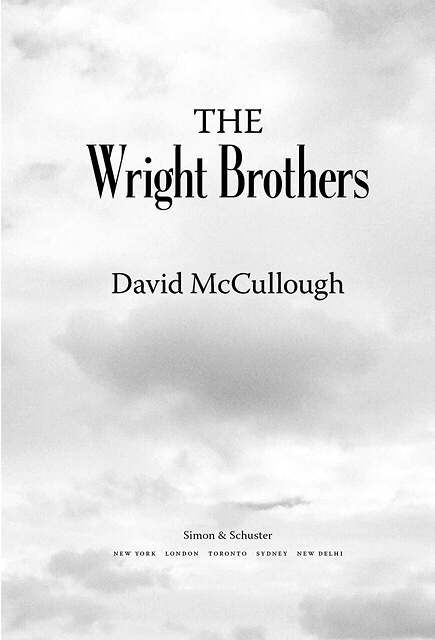Reading The Wright Brothers by David McCullough
Posted By RichC on May 22, 2015
Out of sight, out of mind. Unlike a hard copy book sitting on my reading table, ebooks are easy to forget about … that’s one of the disadvantages of receiving the gift of an ebook (as is having multiple e-reading apps).
My friend Jeff gave me David McCullough’s new book The Wright Brothers for my birthday, knowing I would enjoy the aviation history. I immediately started reading it the day he sent it by Amazon, but since then I’ve forgotten to “pick it back up” … if that is how one refers to a “digital” copy? Remembering to continue reading can be challenging when having too many ebooks to read and too many reading apps to use. Many of the books I’ve purchased have been on the Kindle app and so that is the “go to” reader app, but I’ve saved a few PDF books too. The Kindle app does a pretty good job with PDFs and is easy to use, but not nearly as perfected as their ebook format. Since I use the iPad instead of a Kindle, I also have Apple’s iBooks app as a secondary reader and a few “owned” books from the Apple Store (not my preferred). Putting those two reader apps aside, I use the Overdrive “public library books reading app” most often, since borrowing books and audiobooks from the network of Ohio libraries is the most cost effective. Unfortunately I have trouble getting through a book in 14 days and there is usually a long wait period for those popular books and local libraries have a relatively narrow selection.
Over the past few years I’ve also purchase books from questionable secondary sources and discount book distributors (they go in and out of business). Usually they are in formats requiring propriatary readers or are in a PDF format. For those books, papers and articles, I prefer using my notetaking app called Notability. The advantage is to be able to “notate” or even e-scribble something on the pages if needed. On information books I often will highlight something and recently have found myself wanting to include something useful that I may want to check out in the future. This is often the case if there is a website link for additional information or more pertainent information. The downside is that I need to be responsible for saving back up copies to the cloud instead of Amazon archiving my purchases.
Back to The Wright Brothers biography:
Release date: May 5, 2015
Two-time winner of the Pulitzer Prize David McCullough tells the dramatic story-behind-the-story about the courageous brothers who taught the world how to fly: Wilbur and Orville Wright.
On a winter day in 1903, in the Outer Banks of North Carolina, two unknown brothers from Ohio changed history. But it would take the world some time to believe what had happened: the age of flight had begun, with the first heavier-than-air, powered machine carrying a pilot.
Who were these men and how was it that they achieved what they did?
David McCullough, two-time winner of the Pulitzer Prize, tells the surprising, profoundly American story of Wilbur and Orville Wright.
Far more than a couple of unschooled Dayton bicycle mechanics who happened to hit on success, they were men of exceptional courage and determination, and of far-ranging intellectual interests and ceaseless curiosity, much of which they attributed to their upbringing. The house they lived in had no electricity or indoor plumbing, but there were books aplenty, supplied mainly by their preacher father, and they never stopped reading.
When they worked together, no problem seemed to be insurmountable. Wilbur was unquestionably a genius. Orville had such mechanical ingenuity as few had ever seen. That they had no more than a public high school education, little money and no contacts in high places, never stopped them in their “mission” to take to the air. Nothing did, not even the self-evident reality that every time they took off in one of their contrivances, they risked being killed.
In this thrilling book, master historian David McCullough draws on the immense riches of the Wright Papers, including private diaries, notebooks, scrapbooks, and more than a thousand letters from private family correspondence to tell the human side of the Wright Brothers’ story, including the little-known contributions of their sister, Katharine, without whom things might well have gone differently for them.

Comments